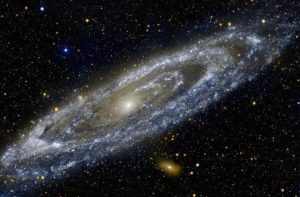
UNIVERSE MAY DIE FASTER THAN EXPECTED, NEW RESEARCH REVEALS

By Oduola F.A.
New research by Dutch scientists suggests that the universe may be on track to die much sooner than previously believed.
However, there’s no immediate cause for alarm — the end is still an estimated 10⁷⁸ years away, or a one followed by 78 zeros.
However, that is a major revision from the previous estimate of 10 to the power of 1,100 years, notes the research paper from Radboud University, published in the Journal of Cosmology and Astroparticle Physics.
“The final end of the universe is coming much sooner than expected but fortunately it still takes a very long time,” said lead author Heino Falcke.
A trio of scientists at Radboud set out to calculate when the most “durable” celestial bodies — white dwarf stars — would eventually die out.
They based their calculations on Hawking radiation, named after celebrated British physicist Stephen Hawking.
Hawking postulated in the mid-1970s that black holes leak radiation, slowly dissolving like aspirin in a glass of water — giving them a finite lifetime.
The Radboud scientists extended this to other objects in the universe, calculating that the “evaporation time” depends on density.
This enabled them to calculate the theoretical dissolution of the longest-lasting body, the white dwarf.
“By asking these kinds of questions and looking at extreme cases, we want to better understand the theory, and perhaps one day, we can unravel the mystery of Hawking radiation,” said co-author Walter van Suijlekom.
Humankind needn’t worry too much about the end of the universe. Unless we escape planet Earth, we’ll be long gone.
In about eight billion years, our star will eventually expand towards the Earth, finally gobbling up our by-then barren and lifeless planet and condemning it to a fiery death.
